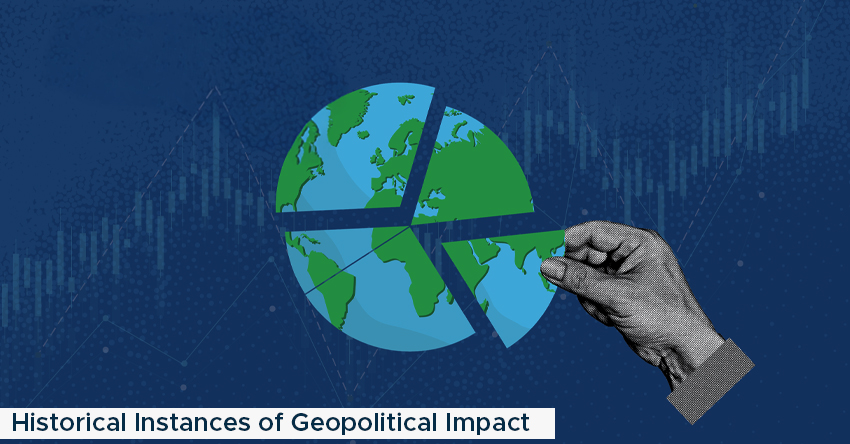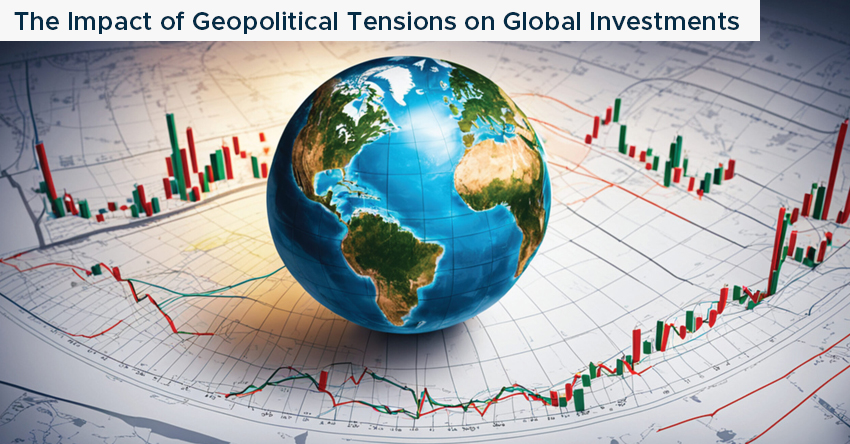Geopolitical tensions have long been catalysts for volatility in global financial markets. Conflicts, trade disputes, and political unrest can significantly influence investor sentiment, leading to fluctuations in stock markets worldwide. Understanding these dynamics is crucial for investors aiming to understand the complexities of global investments.
Historical Instances of Geopolitical Impact

One notable example is the 2022 Russian invasion of Ukraine, which had profound economic repercussions. In response to the invasion, the Russian stock market experienced a sharp decline, with the RTS Index falling by 39% on the first day of the conflict. The Moscow Stock Exchange subsequently closed for an extended period, marking its longest shutdown since 1998. The Russian ruble also plummeted to record lows, prompting the Central Bank of Russia to raise interest rates to 20% in an effort to stabilize the currency.
Similarly, the trade tensions between the United States and China have had significant effects on global markets. In 2018, the announcement of tariffs led to a 2.9% drop in the Dow Jones Industrial Average, reflecting investor concerns over a potential trade war. Companies with substantial exposure to China, such as Caterpillar Inc. and Boeing, saw notable declines in their stock prices. Throughout the trade dispute, markets experienced heightened volatility, underscoring the sensitivity of global investments to geopolitical developments.
Mechanisms of Influence

Geopolitical tensions affect stock markets through various channels:
- Investor Sentiment:
Uncertainty stemming from geopolitical events often leads to risk aversion. Investors may shift assets from equities to safer havens like gold or government bonds, causing stock prices to decline.
- Economic Sanctions:
Imposition of sanctions can disrupt trade and economic activity, impacting the profitability of companies and, consequently, their stock valuations.
- Commodity Prices:
Conflicts in resource-rich regions can lead to supply disruptions, influencing commodity prices. For instance, tensions in the Middle East often result in oil price volatility, affecting energy-dependent industries.
- Currency Fluctuations:
Geopolitical instability can lead to currency depreciation in affected countries, impacting international trade dynamics and multinational corporations’ earnings.
Recent Developments
In recent times, escalating trade tensions have reignited fears of a global economic slowdown. For example, the announcement of new tariffs led to a significant sell-off in global stock markets, with the Dow Jones Industrial Average dropping by 724 points, or 2.9%, reflecting concerns over a potential trade war-induced recession.
Strategies for Investors

To mitigate risks associated with geopolitical tensions, investors can consider the following strategies:
- Diversification:
Spreading investments across various asset classes and geographies can reduce exposure to region-specific risks.
- Monitoring Geopolitical Developments:
Staying informed about global events enables investors to anticipate potential market movements and adjust portfolios accordingly.
- Hedging:
Utilizing financial instruments such as options and futures can provide protection against adverse market movements resulting from geopolitical events.
- Long-Term Perspective:
Maintaining a long-term investment horizon can help weather short-term volatility induced by geopolitical tensions.
In conclusion, geopolitical tensions play a pivotal role in shaping global investment landscapes. While such events can introduce volatility and uncertainty, informed and strategic approaches enable investors to navigate these challenges effectively. By understanding the mechanisms through which geopolitical events influence markets and implementing appropriate risk management strategies, investors can better position themselves to achieve their financial objectives amidst global uncertainties.
